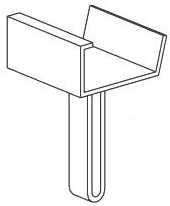elo . 09, 2024 00:10 Back to list
Temporary Support Solutions for Concrete Suppliers and Their Impact on Construction Projects
Falsework for Concrete A Critical Component in Construction
In the realm of construction, the stability and safety of structures are paramount. One essential aspect that contributes to this stability is falsework, particularly in concrete construction. Falsework can be defined as a temporary structure used to support a building, bridge, or other construction until it becomes self-supporting. For concrete suppliers, understanding the importance of falsework is crucial, as it not only affects the quality of the final product but also impacts the overall efficiency of a project.
Falsework for Concrete A Critical Component in Construction
For contractors and concrete suppliers, the selection of appropriate falsework is critical. It can be categorized into two types traditional and modern. Traditional falsework typically consists of timber, formwork, and steel props. While this approach is often cost-effective, it may not provide the same level of safety and reliability as modern alternatives. On the other hand, modern falsework systems utilize engineered materials like aluminum and specialized structural components designed for easy assembly and disassembly. This not only speeds up construction time but also enhances the safety of the workers involved.
falsework for concrete supplier

The design and assembly of falsework must adhere to stringent safety and engineering standards. The load-bearing capacity, height, and stability of the falsework must be thoroughly assessed. Inadequate planning or execution can lead to accidents, injuries, and project delays. Therefore, concrete suppliers must work closely with engineers and project managers to ensure that the falsework is both functional and safe.
Moreover, the economic implications of falsework cannot be overlooked. Quality falsework can lead to faster construction timelines, reducing labor costs and improving the overall profitability of a project. In many cases, investing in higher-quality falsework can pay off in the long run, as it minimizes the risk of structural issues that may arise from using subpar materials or designs.
In addition to these practical considerations, sustainability has become an increasingly important factor in construction practices. Many concrete suppliers are now exploring eco-friendly options for falsework. Systems that are reusable and made from renewable resources are gaining traction, aligning with global efforts to reduce waste and carbon footprints in the construction industry. By choosing sustainable falsework solutions, concrete suppliers can attract environmentally-conscious clients and contribute positively to the industry’s efforts to minimize its environmental impact.
In conclusion, falsework is an indispensable element in concrete construction that directly influences both the quality and safety of the structures being built. For concrete suppliers, understanding the ins and outs of falsework can enhance their service offerings and improve collaboration with contractors and engineers. As the construction industry continues to evolve, embracing innovative and sustainable falsework solutions will not only lead to increased efficiency and cost savings but also help shape a safer and more responsible future for construction practices. The synergy between concrete suppliers and the use of effective falsework will undoubtedly play a crucial role in the success of modern construction projects.
-
Ringlock Scaffolding: Strong, Safe & Efficient Solutions
NewsAug.27,2025
-
OEM Column Formwork: Circular, Curved & Inclined Solutions
NewsAug.26,2025
-
Premium Scaffolding Jacks: Stable, Adjustable & Durable
NewsAug.25,2025
-
OEM Wall Formwork & Shuttering: Flexible & Curved Solutions
NewsAug.24,2025
-
Adjustable Heavy Duty Props for Slab Formwork | Strong & Reliable Support
NewsAug.23,2025
-
Adjustable Heavy Duty Props for Slab Formwork - Strong & Safe Support
NewsAug.22,2025